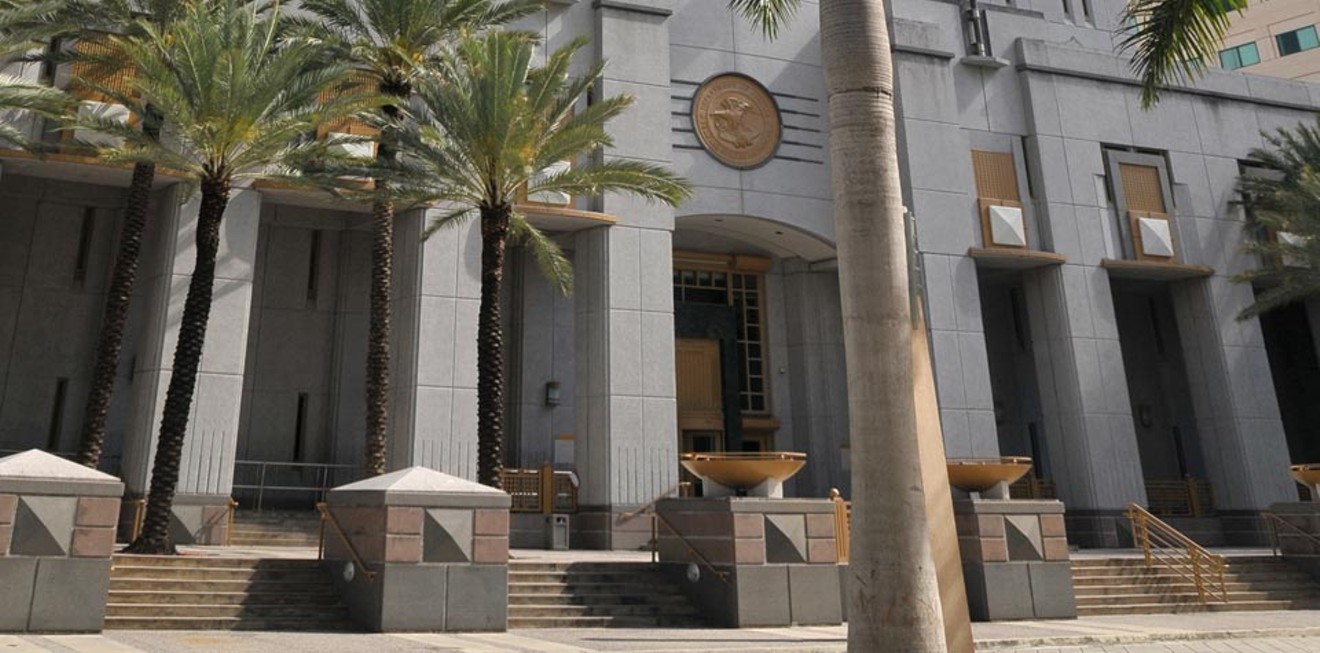For decades, José Miguel Battle Sr. ran La Corporación, a ruthless organized-crime syndicate also known as the Cuban Mafia. It made more than a billion dollars on gambling rings and used arson, beatings, and assassins to deal with its enemies. His son, José Miguel Battle Jr., rose through the ranks to help run the criminal enterprise as the family became one of the richest in Miami.
In 2004, both the Battles were arrested in a huge federal sweep that targeted their gang. Battle Sr. died in custody three years later, but Battle Jr. is now a free man. The younger leader of La Corporación was released from federal prison this past Monday, prison officials confirmed to New Times.
Battle Jr. served more than a decade in Miami's downtown federal prison facility after a jury convicted him in 2006 of federal racketeering conspiracy charges including murder, arson, gambling, and money laundering. The elder Battle, also known as El Padrino, or the Godfather, died in 2007 at the age of 78 while serving a 20-year sentence in a South Carolina federal prison.
The elder Battle was born in Havana and worked as a cop under Fulgencio Batista before fleeing to Florida after the Cuban Revolution. He spent two years in Cuban prisons after getting captured during the Bay of Pigs Invasion and then found his way to New Jersey, where he built a massive underground gambling ring centered on bolita lotteries.
Federal prosecutors said Battle and his associates had a good relationship with Italian mobsters and met with them in 1982 to discuss the "two-block rule," an unwritten code that competitors couldn't operate too closely to one another. When rules were broken, though, Battle's gang doled out beatings and arsons and contract killings, the government said.
The elder Battle was convicted in 1977 of murder solicitation and conspiracy but served only two years of a 30-year sentence before his conviction was overturned. Prosecutors said that as his father had aged, Battle Jr. often called the shots.
"If anything affected 'The Corporation,'" associate Consuela Alvarez said during trial in 2006, "they have to do what they have to do. They have to do it because we have a name. We have to keep our name high."
From 1977 to 2002, La Corporación made approximately $1.4 billion in proceeds from its bolita operations in New York, New Jersey, and Miami, the feds say. Much of the cash was funneled to offshore accounts in Panama and the British Virgin Islands.
But the enterprise came tumbling down in 2004, when Battle Sr. was recaptured, along with dozens of other organization members. The younger Battle was caught on his personal cruise ship, the Celebrity Summit, off the coast of Panama by a U.S. Coast Guard law enforcement detachment aboard the USS Thomas S. Gates.
The Gates intercepted Battle's cruise ship in the early morning of March 19 and circled it for the next several hours. (At the time of Battle's arrest, this reporter was a sonar technician on the Gates.) The Coast Guard team boarded the Celebrity Summit under the cover of darkness and apprehended Battle while he was sleeping. Shackled, Battle was taken by inflatable boat to the Gates.
Joshua Werst, a gunner's mate aboard the Gates, recalled that Battle Jr. kept a low profile as he was shackled to a bed in the commodore's stateroom while being transported to Guantánamo Bay. "He was wearing a white T-shirt and pajama bottoms," Werst tells New Times, adding that Battle Jr. could have passed for any Cuban abuelo. "We didn't realize how important he was until after we dropped him off."
In 2007, Battle Jr. was sentenced to nearly 16 years in prison and ordered to forfeit $642 million from his illegal operations.
Now in his 60s, he was released to the custody of the U.S. Probation Office Monday and assigned a parole officer, according to Miami Bureau of Prison officials.
What will the former crime boss do now? It's unclear how active La Corporación is these days, and Battle Jr. didn't respond to New Times' requests for an interview.
But during his sentencing, federal prosecutors suggested Battle Jr. might have millions stashed away in overseas accounts.
Battle Jr. refused to provide any information regarding his finances and wouldn't sign financial release forms, then-Assistant U.S. Attorney (and current Labor Secretary) Alexander Acosta wrote in 2006. "Consequently, Battle Jr. continues to control this money," he wrote.
Hollywood has since taken interest in his family's story. A movie produced by Paramount and Leonardo DiCaprio and starring Benicio del Toro as Battle Sr. is expected to be released as early as 2018.
[
{
"name": "Air - MediumRectangle - Inline Content - Mobile Display Size",
"component": "19274298",
"insertPoint": "2",
"requiredCountToDisplay": "2"
},{
"name": "Editor Picks",
"component": "17482312",
"insertPoint": "4",
"requiredCountToDisplay": "1"
},{
"name": "Inline Links",
"component": "18711090",
"insertPoint": "8th",
"startingPoint": 8,
"requiredCountToDisplay": "7",
"maxInsertions": 25
},{
"name": "Air - MediumRectangle - Combo - Inline Content",
"component": "17482310",
"insertPoint": "8th",
"startingPoint": 8,
"requiredCountToDisplay": "7",
"maxInsertions": 25
},{
"name": "Inline Links",
"component": "18711090",
"insertPoint": "8th",
"startingPoint": 12,
"requiredCountToDisplay": "11",
"maxInsertions": 25
},{
"name": "Air - Leaderboard Tower - Combo - Inline Content",
"component": "17482313",
"insertPoint": "8th",
"startingPoint": 12,
"requiredCountToDisplay": "11",
"maxInsertions": 25
}
]











